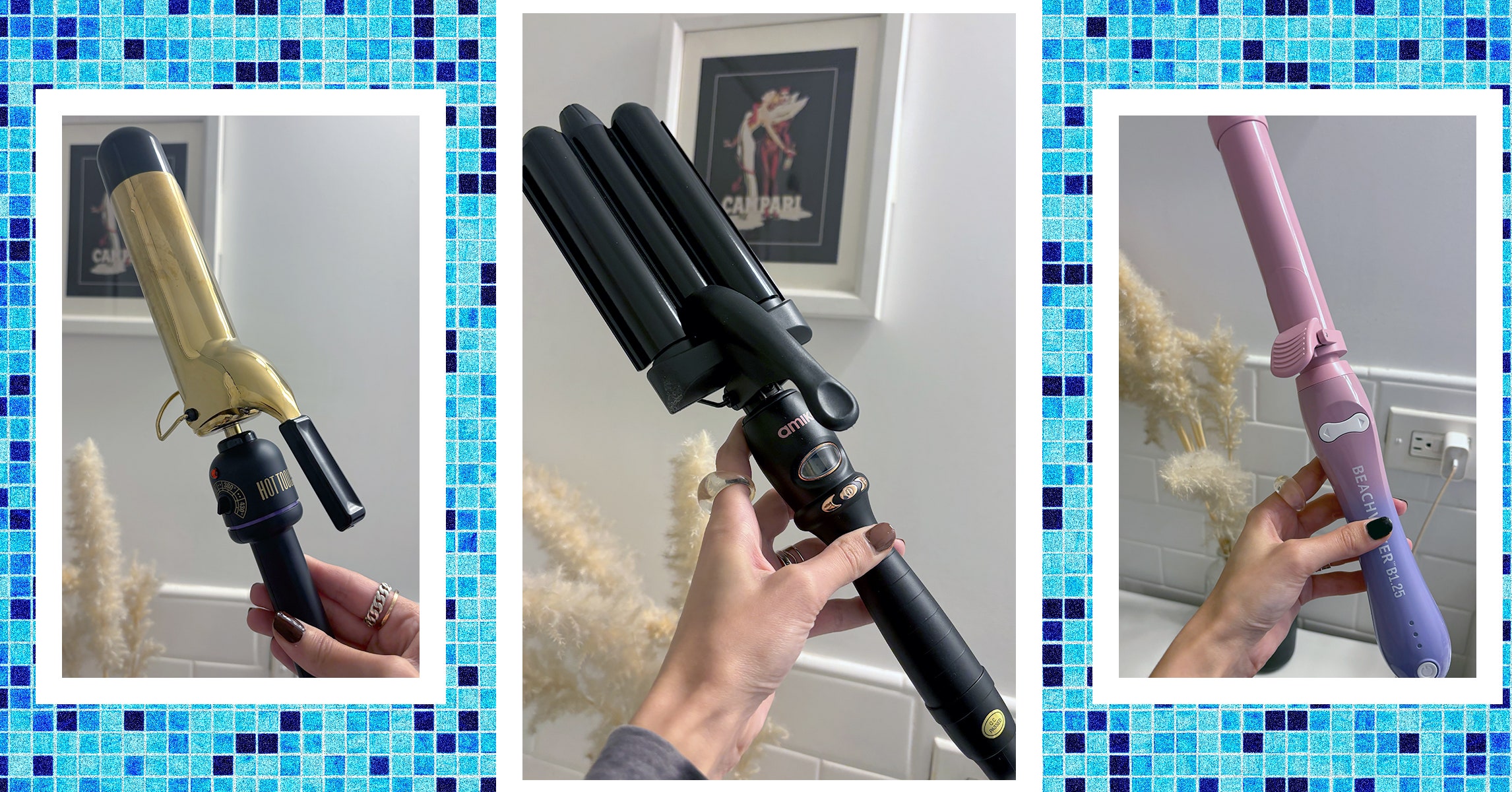I’ve always had a love-hate relationship with curling my hair, and it’s been a long journey finding the best curling irons to style with. My tumultuous tryst with curling irons probably began because not only is my very naturally flat, straight hair hard to curl to begin with, but also because I’ve had my fair share of curling iron burns on various areas of my face and neck throughout my teen years (don’t ask).
I hated the trial and error of learning how to curl my hair in those days, but loved how my curled hair transformed me every time, whether it was bouncy ringlets for my adolescent theater performances, rounded curls for my senior prom, or loose waves for college graduation. Never have I gone to an important milestone in my life without a curling iron—no matter how clumsy my hands were or how bulky the device was.
But curling irons have come a long way since the late 2010s, and have followed me into adulthood as I test out various hair styling tools for my job as a beauty editor. Ceramic barrels, multistyling blow-dry curlers, and ion technology have ushered in easier ways to control temperature and allow for more dexterity, and are much quicker to use than their medieval counterparts of the early aughts.
Here, I tested some of the best curling irons on the market to uncover which stylers rose to the top for someone like me with very hard-to-curl hair, plus which ones are best for wherever you may be in your curling iron journey, whether you have long hair, are a beginner, or just want a beachy wave. These were my favorites—and in case you were wondering, I’m happy to report that I did not burn myself with any of these!
For more hair tool guides, check out Best Hair Dryers and Best Hair Straighteners.
Power up with unlimited access to WIRED. Get best-in-class reporting that’s too important to ignore for just $2.50 $1 per month for 1 year. Includes unlimited digital access and exclusive subscriber-only content. Subscribe Today.
What’s Better, Ceramic or Titanium Curling Irons?
Curling irons are typically either tourmaline ceramic or titanium, and while neither is necessarily better than the other, there are a few differences to keep in mind when shopping. Ceramic irons generally take longer to heat up, and they can also distribute heat more evenly, making them suitable for thinner and finer hair types. Titanium curling irons, on the other hand, heat up very quickly and are better if your hair is thicker or coarser. You’ll want to choose either a ceramic or titanium curling iron depending on your hair type and texture. Since I have longer and thinner strands, I found that the ceramic irons I tested were a bit more suitable for me.
What’s the Difference Between a Curling Iron and a Curling Wand?
A curling iron typically has a safety clamp that allows you to hold the hair in place without needing both hands. Curling wands don’t have a clamp—so you’ll have to hold the tip of your hair as you curl it. Both irons and wands have their pros and cons: The safety clamp can sometimes leave a funny crimp in your hair (which I experienced while testing a handful of these), while wands unfortunately make it a lot easier to burn your fingers (which thankfully, I was able to avoid).
I tested these curling irons over a span of a few months, right before a handful of events and occasions when I wanted to add more volume and style to my look. My hair is thin and pin straight, but there’s a lot of it, so I was most excited about the irons that not only successfully curled my hard-to-curl hair, but that allowed me to do so in a short amount of time.
I typically sectioned my hair in pieces from left to right. Although I did test upper and lower sectioning a few times, I found the former to be more successful for me personally because it was more comfortable for my arms and allowed me to focus on each strand of hair a bit better. And for those science buffs out there: I tested all of these on second-day hair, except for two (the Dyson Airwrap and Shark FlexStyle) that require damp hair. I usually curl about three-quarters of my hair (from midshaft to end), so I tested roughly that length for every iron I tried. I also used a heat protectant spray and set most of these (except one … more on that, later) with hairspray.

